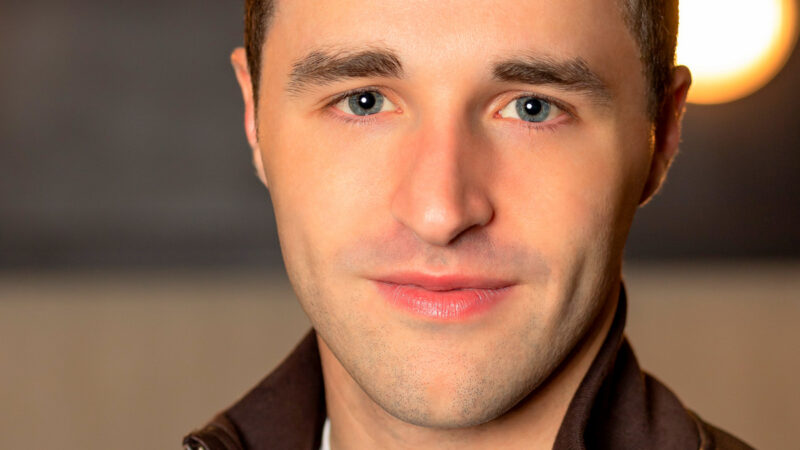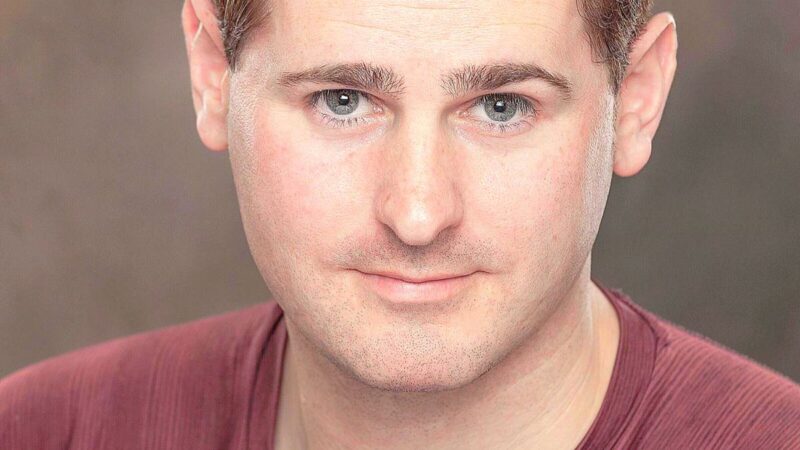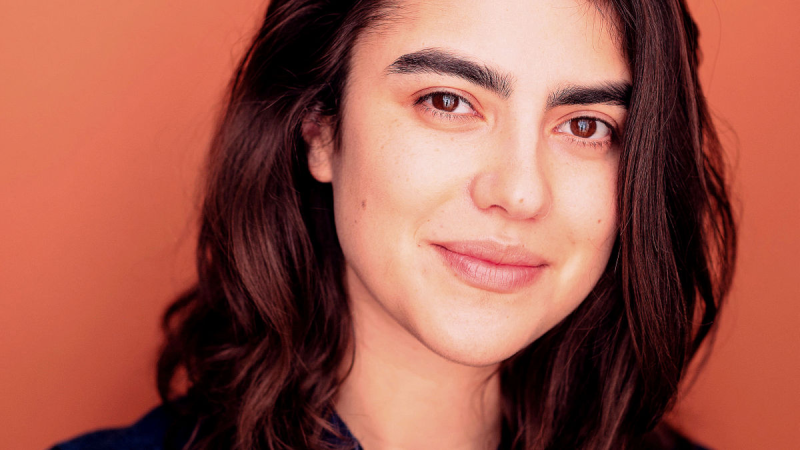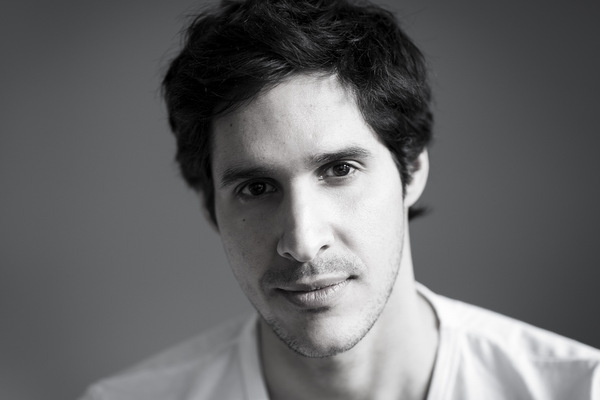
Despite being in school plays and briefly attending a drama class in secondary school, the ball really started moving when prior to completing and handing in my master’s thesis in philosophy, a friend of mine and I spontaneously (and very randomly) booked a Greek theatre course offered through East 15. We were both philosophy students looking for fun, and this course consisted of a two week trip to Greece – a creative alternative to their classical philosophy. The course took place on an island which charmingly escaped many details of modernity. Led by the very charismatic and talented Corinna Seeds, it was an immersive and thoroughly enjoyable experience. After the final stage performance, I was encouraged by Corinna to keep training and to look for work. And so I did.
Grateful to have been part of a wonderfully directed and acted film depicting the futility and morbidity of war @netflix pic.twitter.com/qJTPqog0UX
— Ziad Abaza (@ZiAbaza) April 27, 2017
After 6 years of “grinding” on Starnow, doing shorts, student films, projects that never finished, and travelling up and down the country working for free, I was scouted by a major talent agent and signed. Although I had attended many acting courses and workshops, I had not graduated from a drama school. My first audition through my new agent was for a series regular in the BBC’s Holby City. It was the first time I’d ever been seen by a major Film/TV casting director. While I didn’t get the role, this marked a major shift in my approach to drama: from something I perceived solely as a passionate hobby, to now also a potential profession. I remember thinking, “OK, now I’m competing with the best actors in the country”. The thought was both daunting and exciting. Within three months after that, I auditioned for K-Shop.
indieactivity: What acting technique do you use?
Ziad: I don’t have any set method or approach to acting just yet. I’m still learning, trying, and open to new things. I’ve had drama teachers who will teach entirely contradictory approaches, systems and philosophies which all work beautifully within their own right. I often find that my approach depends on the actual role I’m considering and is therefore constantly shifting.
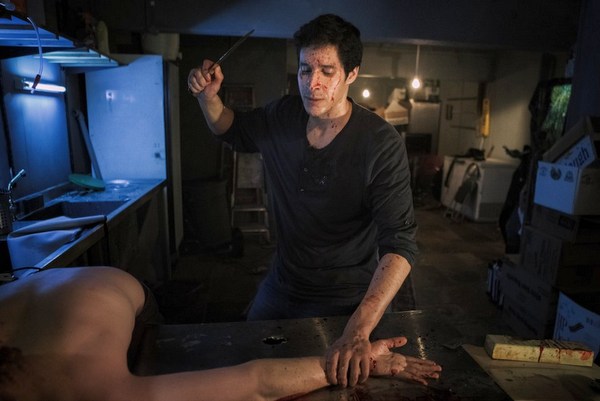
A screenshot from K-Shop
indieactivity: What wrong impressions do actors hold about acting?
Ziad: I can’t be the one to say what an actor thinks is wrong. If it works for him or her, then good for them. I can only speak for myself, and what I would say is that a passion for the craft must come before a desire for the incidental bonuses that come with this type of work. I often see and hear people striving for the fame and the riches. That doesn’t seem right.
indieactivity: Do you take courses to improve your craft?
Ziad: Absolutely. I think it’s so important and I hope I never abandon training.
indieactivity: How do you keep fit as an actor?
Ziad: Awareness. Just being present as much as possible and observing. Keeping fit also entails not allowing one’s own sense of self to dominate. Ego can easily cloud your perspective and essentially corrupt both your work and outlook.
indieactivity: How do you prepare for a role, when you get it?
Ziad: It differs from project to project often depending on the narrative and circumstances given. Like most, I usually go with intuition regarding a given scene or situation after thorough research. But then trying out counter-intuitive portrayals can be golden, and that’s where it’s really interesting and fun. Of course, many of these fall flat on their faces. I don’t like to over-rehearse unless I’m trying a completely different approach to a scene.
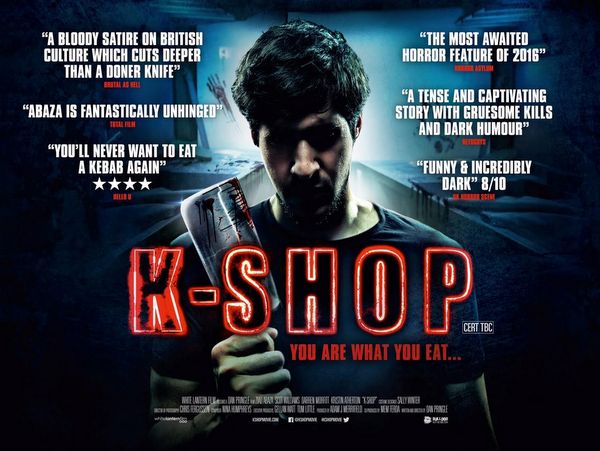
indieactivity: How do you create a character in a script into a real person?
Ziad: I use myself and my own being/life as a starting point. What else do we have? Sometimes that’s half the work. Other times it’s a stretch. But this relates to a deeper philosophical question regarding whether or not you would be that “character” if you were under the exact same circumstances. We can’t know for sure, but it’s in the interest of the actor to assume that he or she would be.
So yes, you would indeed be a murdering drug dealer or a psychotic prostitute too if you had the same life experiences. This permits us to “go there” without judgement. The human imagination is so powerful at shaping our mental patterns and existential assumptions. This is golden for an actor. Dreams are also indicative of this phenomenon: on an almost nightly basis, we enter alternative realities and automatically assume our “roles” within them, yet they are not real. At the same time, it’s crucial to remember that acting is essentially about fun and play. Some of us just have a more intense sense of play than others.
indieactivity: How do you stay fresh on set?
Ziad: I’m hopefully already there, but if I “slip out” I usually have a voice in my head that re-imposes the circumstances and situation on me. I may also have created a trigger mechanism to root me back in – maybe by looking at a certain picture, playing a song, recalling a specific line or memory, striking a certain pose, or making a sound which I’ve pre-anchored in that reality.
indieactivity: Describe a memorable character you played?
Ziad: Salah in K-Shop (2016). I don’t have a huge list to draw from but that was easily the most significant.
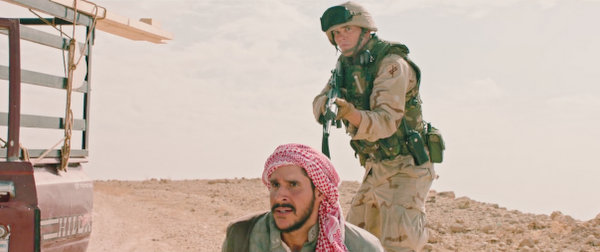
Ziad Abaza in Sand Castle, filmed in Jordan for NETFLIX
indieactivity: Explain one creative choice you took on set?
Ziad: I’d say, in K-Shop, the confrontation in the Kebab house with Jason Brown, wonderfully played by Scot Williams, who offers to buy the shop. The spitting on the counter and the line following were improvised and unscripted. The mental instability of the moment impulsively carried me there, despite me not really knowing why I was doing it. Director Dan Pringle, later rationalised the moment by saying I was marking my territory, and showing that despite thinking little of the shop, I’d still not give it up to the likes of Jason Brown. Both seem to be very valid interpretations, neither of which were on my mind.
indieactivity: What do you want most from a director?
Ziad: Clarity, trust, and thereafter, freedom. But in principle, I’d be more interested in what a director wants from me.
indieactivity: What actors do you long to work with?
Ziad: Sadly no one. I’m almost certain that the best moments working with another actor will come by surprise, and they probably won’t be obvious choices.
indieactivity: What advice would you give to actors?
Ziad; Just keep going. If it’s your destiny to work in this industry there is nothing anyone can do to stop that. But you as an individual must work hard and be patient. Losing patience can cost you your dreams. If another life path makes itself apparent to you, then so be it, but keep going for as long as you are willing and able. Never take rejections personally. There are far more non-personal and non-talent related reasons why you might not be cast in something. Don’t let it dishearten you. That’s where your patience is tested. The less focus you have on your own self (ego), the less personally you’ll be affected negatively by such things. This is true for life as well. Trust in the bigger picture. Be sure to have other passions to put yourself into. Don’t let the industry dictate your happiness. Let patience, hard work and humility be your guiding principles.
Congratulations to IDSA and IAG’s Ziad Abaza for being nominated BIFA Most Promising Newcomer 2016 for the role of Salah in #KShop! pic.twitter.com/Uj2UrfoNQ3
— IDENTITY (@IDENTITYdrama) October 24, 2016
Briefly write about your career
As a new comer, I did a couple of episodes in a Fox series called Tyrant (2015) and K-Shop (2016) is really my most significant introduction to the industry. A couple of previous shorts I’m particularly proud of are Robin Bell and Leigh Jones’ “The Fear or Living” – which was probably the first script I ever connected with immediately, and “The Journey” by Robert Ashton Jr., which challenged societal prejudice. As for K-Shop, I’m really pleased with the film and its reception. And if it’s true that your first few substantial roles determine your cast-type, then I’m very happy with that. I have a natural inclination towards psychologically layered scripts. Let’s see what happens from here on in 🙂

